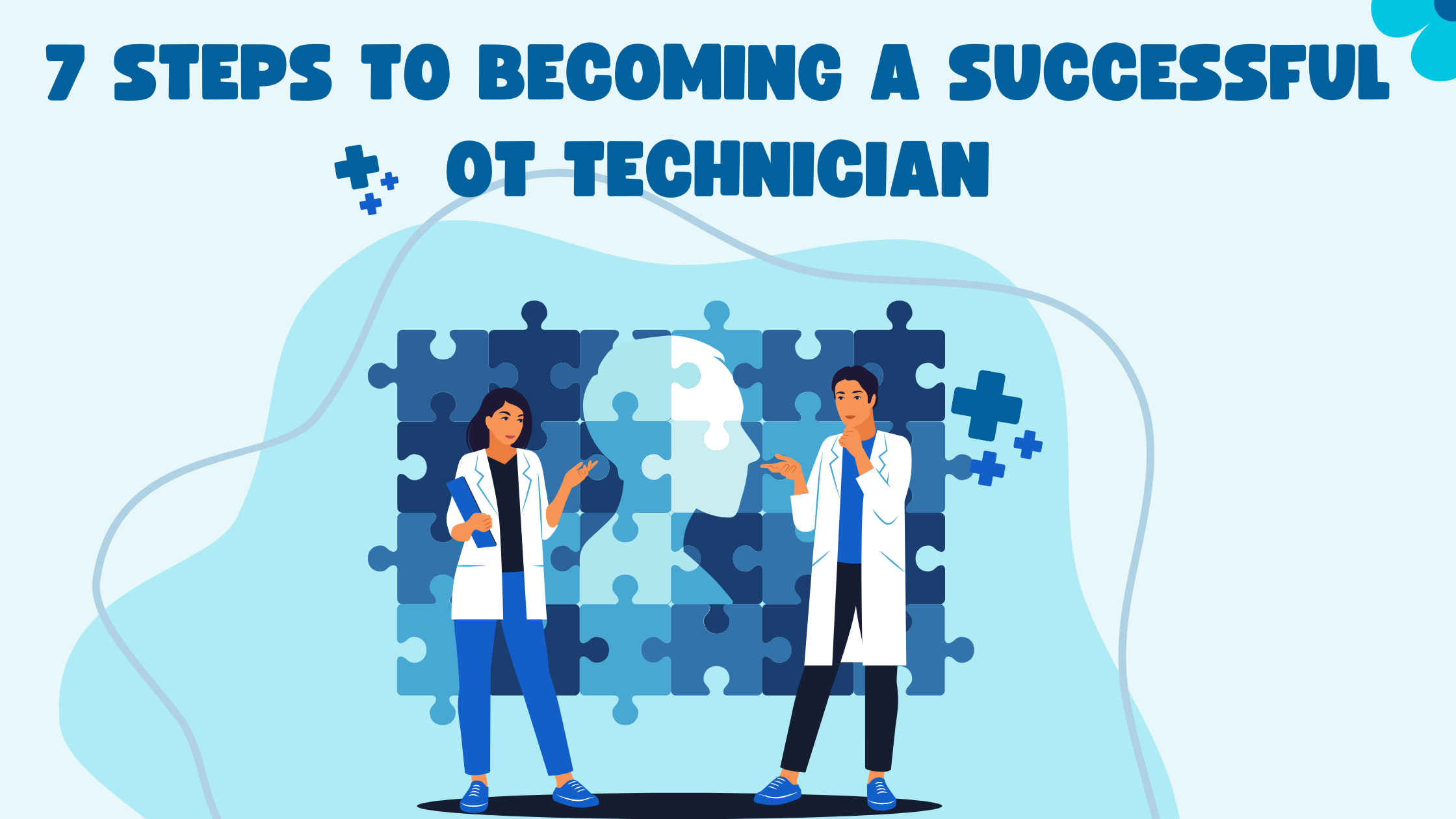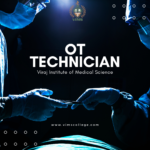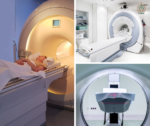7 Proven Strategies to Ace Your NEET Exam


The National Eligibility cum Entrance Test (NEET) stands as a gleaming gateway for legions of aspiring doctors in India, marking the definitive path toward a career in medicine. This high-stakes examination, with its rigorous demands and competitive nature, often looms over students like a formidable mountain. However, much like skilled climbers maneuvering through treacherous terrain, NEET aspirants can ascend to success by strategically employing proven techniques and steadfast determination. In this article, we unravel seven meticulously crafted strategies designed to illuminate your journey from preparation to triumph.
Picture yourself standing at the foot of an awe-inspiring monument, each step meticulously planned to reach the apex without falter. Our first step starts with comprehensively understanding the syllabus—a detailed atlas guiding you through every subject and topic’s ample landscape. Next comes constructing a realistic study schedule, an unwavering blueprint balancing intense studying sessions with rejuvenating breaks. Armed with quality study materials akin to sturdy climbing gear and practicing regularly with mock tests that simulate genuine exam conditions will elevate your readiness.
Yet strategy isn’t solely about academic rigors; it encompasses overall well-being too. Effective time management strategies ensure efficient problem-solving during the exam crunch while maintaining physical health and alleviating stress keeps your mental acuity sharp throughout preparations. Lastly, never hesitate to seek help—coaching centers, online resources, or peer groups can provide invaluable support when navigating complex concepts or overcoming stumbling blocks. With these seven robust strategies laid before you like a clear map under guiding stars, let’s embark on this transformative journey together, reaching new heights of achievement one methodical step at a time.
Understand the Syllabus Thoroughly
Grasping the full breadth of the NEET syllabus is akin to unlocking a treasure map: every subject, topic, and subtopic outlines your path to success. Begin with a detailed examination of each subject—Physics, Chemistry, and Biology—and break them down into their minute components. Visualize this process like peeling layers off an onion; start from broader categories such as Mechanics in Physics or Organic Chemistry and drill down to individual concepts like Newton’s Laws or reaction mechanisms.
Pinpointing high-weightage areas acts as your beacon in this academic journey. For instance, within Biology, Human Physiology often carries significant marks and requires focused attention. Equivalent zones exist across every discipline—thermodynamics in Chemistry or electrostatics in Physics. Approach these sections with the fervor of a detective hot on an important case because mastering them will yield higher dividends in terms of scores.
Utilizing highlighters, sticky notes, or digital apps for marking crucial topics can bring vibrancy to your study time. Imagine your textbook lighting up like Times Square at night with key formulas displayed prominently—a daily reminder that reinforces what you need to internalize deeply. Diving into previous years’ question papers further guides you through frequently-asked questions and recurring themes, making sure no stone is left unturned in your preparation arsenal.
Create a Realistic Study Schedule
A coherent and realistic study schedule is your roadmap to conquering the NEET exam. Imagine yourself as an architect; you’re designing a blueprint that balances rigorous study with rejuvenating breaks, much like crafting the intricate structure of a grand cathedral. Start by segmenting your preparation into daily, weekly, and monthly plans. For instance, allocate dedicated hours every day for theory sessions in biology, chemistry experiments in the lab of your imagination, and solving physics problems that spark excitement like pieces of a puzzle.
Incorporate short breaks after each intensive study session—think of these as refreshing oasis stops on a long desert trek. During these interludes, indulge in simple pleasures like breathing fresh air or drinking a warm cup of herbal tea that cocoons you in calmness. This practice not only revitalizes your mind but also sharpens your focus when you return to those thick textbooks. Evenings could be reserved for reviewing the day’s learning and tackling quick quizzes that make knowledge stick like glue.
Weekly planning might involve setting small goals such as mastering key concepts or finishing specific chapters. Treat weekends as checkpoints where you review what you’ve learned during the week and assess areas needing more attention. Reward yourself with something enjoyable—a movie night or a trip to your favorite café—creating positive reinforcement memories that’ll encourage consistency.
Monthly milestones are broader yet crucial; they align with completing substantial portions of the syllabus while leaving ample room for revision before D-day approaches. This phased plan acts like scaffolding around your towering ambition of clearing NEET with flying colors. Remember, consistency trumps cramming; steady steps forward lightly snowball into robust progress over time, ultimately constructing an unshakable fortress of knowledge ready for battle against any exam challenge.
Use Quality Study Materials
Selecting the right study materials is like choosing the best ingredients for a recipe—they are essential for success. The backbone of your preparation should be textbooks endorsed by experts and trusted reference guides that break down complex topics into digestible, bite-sized pieces. For instance, NCERT textbooks are highly recommended as they provide a clear foundation of the core subjects—Physics, Chemistry, and Biology. Supplement these with renowned titles like H.C. Verma’s “Concepts of Physics” or O.P. Tandon’s “Physical Chemistry,” which delve deeper and offer heaps of practice problems that mirror NEET-level questions.
The tapestry of your study must be woven with threads from previous years’ question papers. Like seasoned warriors training with historical battle strategies, familiarize yourself with past exam patterns and frequently asked questions to build anticipation and confidence. Extract lessons from each paper; perhaps 2018’s NEET threw curveballs in Human Physiology or tricky Organic Chemistry reactions in 2020 tripped many aspirants—study these nuances meticulously. Analyzing these papers not only reveals recurring themes but also hones your time-management skills under timed conditions.
Moreover, mock tests serve as invaluable mirrors reflecting your preparation status holistically. Picture this: a marathon runner practicing sprints to fine-tune stamina and speed—it’s no different here! Engaging in regular mock tests helps simulate the pressure-cooked environment of the actual exam day while providing an array of questions to dissect every concept you’ve studied so far rigorously. Challenge yourself incrementally with these exercises to identify weak spots swiftly so you can revisit those thorny chapters and master them before facing the final bell.
Practice Regularly with Mock Tests
To par excellence your NEET preparations, integrating regular mock tests into your study routine is indispensable. Imagine transforming your workspace into the bustling examination hall filled with strategy and tension. Sitting in that environment, replicating the exact conditions of the exam day, primes not just your intellect but also your sensibilities to manage time adeptly under pressure. Like an athlete training rigorously before the big event, these repeated simulations build a muscle memory, making you increasingly efficient at navigating through complex questions.
Post completing each mock test, don’t merely tally up marks; dive into thorough reviews of your performance. Much like refining a raw gemstone, this reflection reveals both shining strengths and areas needing polish. Analyze mistakes scrupiously — was it due to conceptual misunderstanding or careless errors? Identify patterns: do organic chemistry questions often trip you up or is it logical reasoning that’s tougher? This mirror reflects weak facets which can then be targeted systematically in subsequent studies.
An equally vital part of practicing with mock tests involves actioning on those insights gained from performance reviews. Picture yourself tailoring specific drills for each identified weakness much like honing different strokes in archery until precision in every shot is achieved. For instance, if physics numericals are cumbersome, dedicate more focused practice sessions to mastering them using varied problems from trusted resources. Over time, turning these waning weaknesses into formidable strengths elevates overall confidence and significantly enhances readiness for the actual marathon that is the NEET exam.
Focus on Time Management
Mastering the art of time management can be the defining factor between an average score and an exceptional one in the NEET exam. Imagine yourself as a maestro conducting a symphony; each section of your exam is an instrument that must play perfectly in harmony—without rushing or dragging. To achieve this, begin by employing strategies for quick problem-solving. For instance, when tackling multiple-choice questions, promptly eliminate obviously incorrect options to narrow your focus. This not only saves precious seconds but also sharpens your chances of landing upon the right answer more quickly.
Crafting a meticulous plan for time allocation during the exam can mitigate undue stress and bolster confidence. Think of each minute as gold dust in an hourglass; once spilled, it cannot be reclaimed. Before diving into questions headfirst, allocate a fixed yet flexible timeframe to each section based on its weightage and difficulty level drawn from your mock test experiences. Prioritize sections you find most challenging first when your mind is fresh and agile, leaving ample room at the end for review and correction.
One effective tactic is practicing with a stopwatch as you solve sample papers or mock tests under timed conditions, mirroring actual exam scenarios. Training yourself to work under these timed simulations helps build speed along with accuracy—a dual advantage akin to driving swiftly yet smoothly on a bustling highway without ever losing control. Analyzing performance afterward provides valuable insights into which areas monopolize too much time and which ones you’re breezing through effortlessly, allowing you to fine-tune your strategy further.
Remember to keep calm amidst the ticking clock; panic is a thief that steals precision with every heartbeat it hastens. Integrate deep breathing exercises into your preparation routine so they become second nature during moments of tension in the exam hall. Approaching each question with a clear head ensures that you utilize every moment effectively like a skilled archer hitting targets with measured precision rather than hurried shots lacking aim.
Stay Healthy and Manage Stress
Amidst the rigorous preparations and endless hours of studying for the NEET exam, maintaining your physical health and mental well-being is not just beneficial—it’s essential. Think of your body as a finely tuned instrument; without proper care, its efficiency declines. From ensuring you get adequate sleep each night to eating nutritious meals that fuel your brain power, every small action contributes to better performance. Envision starting your day with a hearty breakfast rich in protein and healthy fats—a fluffy omelet brimming with vegetables paired with whole grain toast can set the tone for productive study sessions.
In addition to physical nourishment, incorporating techniques like meditation into your routine can be transformative. Picture yourself sitting comfortably in a quiet corner, eyes gently closed as you breathe deeply, inhaling tranquility and exhaling stress. Even ten minutes of focused breathing exercises each morning can clear your mind and enhance concentration. Techniques such as guided visualization can also evoke calming images of serene landscapes or gentle waves lapping at a shore, helping to melt away tension.
Equally important is integrating regular exercise into your schedule. Imagine the refreshing sensation of an early morning jog or the invigorating stretch of yoga poses that awaken both mind and body. Activities like cycling under dappled sunlight or engaging in playful sports can boost endorphins—the feel-good hormones—washing over you like a soothing balm amidst the tide of exam stress. Remember, exercise isn’t solely about physical fitness; it’s about creating an uplifting rhythm that supports holistic health.
Finally, establishing a consistent routine wherein breaks are intentionally programmed can rejuvenate both body and spirit. Consider stepping outside during short intermissions to breathe in fresh air flavored with hints of blooming flowers or feeling the soft rustle of leaves beneath your feet during a leisurely stroll. Such sensory experiences can refresh your outlook while keeping stress levels manageable, ultimately harmonizing preparation efforts with well-being in this crucial time leading up to the NEET examination.
Seek Help When Needed
Imagine you’re trekking up a daunting mountain trail, where every step demands intense effort, and the end goal seems miles away. NEET preparation mirrors this journey, and sometimes, it’s essential to seek out knowledgeable guides who can navigate the treacherous paths with you. Coaching centers serve as these experienced guides, offering structured learning experiences crafted by seasoned educators. They imbue your study routine with an array of valuable study materials, from detailed notes to practice tests designed meticulously in alignment with NEET standards. Similarly, tapping into online resources like educational platforms and video lectures provides you with flexibility and access to diverse teaching styles that cater to every student’s unique learning preferences.
Joining a peer study group is akin to having fellow climbers on your trek; they offer companionship and collaborative energy that keeps motivation levels high. Engaging in group discussions helps clarify concepts through mutual explanation—often when explaining subjects to others, you solidify your understanding too. Moreover, the camaraderie built during these sessions turns arduous study hours into more enjoyable and productive periods.
One of the most critical habits to develop is asking questions early rather than letting doubts fester like small snowballs that eventually morph into avalanches. Each question resolved promptly enables a smoother ascent towards mastery of complex topics. For instance, if trigonometric problems persistently trip you up, addressing those issues head-on with a teacher or tutor cements foundational knowledge necessary for tackling tougher questions later on.
Seeking support should never be viewed as a weakness but as leveraging every available resource for success. This proactive approach ensures you’re always moving forward without unnecessary stumbles or wasted efforts. Remember, many successful NEET qualifiers acknowledge that embracing timely help was instrumental in their triumphs—there’s no solitary pursuit in achieving greatness; it’s often a collective effort bolstered by shared wisdom and assistance.
Conclusion: Your Path to NEET Success
In conquering the formidable challenge of the NEET exam, adopting a well-rounded approach is paramount. Begin by delving deeply into your syllabus, ensuring no topic slips through the cracks. Craft a balanced study schedule that seamlessly blends focused study sessions with rejuvenating breaks. Select top-tier study materials—like time-honored textbooks and question papers from previous years—to pave your way with wisdom. Regular mock tests will sharpen your readiness, allowing you to navigate exam conditions with ease and confidence.
Mastering time management is essential; it transforms each moment into an opportunity for precise problem-solving. Equally critical are your physical health and mental equilibrium—invigorate yourself with exercise and calming meditation practices. Remember, seeking assistance when faced with hurdles illuminates the path forward, whether it’s through coaching centers or spirited peer discussions. Embrace these seven strategies as tangible tools in your academic arsenal, persistently pursue excellence, and visualize yourself stepping confidently into the medical field’s vast landscape. The journey is rigorous, but unwavering determination will etch success into your bright future.
![]()


 Embarking on a career as an OT technician can be both rewarding and impactful. As a crucial member of the healthcare team, an Occupational Therapy (OT) technician supports occupational therapists in helping patients improve their daily living and working skills. This role is perfect for those passionate about making a positive difference in others’ lives, working directly with diverse groups of people ranging from children to the elderly.
Embarking on a career as an OT technician can be both rewarding and impactful. As a crucial member of the healthcare team, an Occupational Therapy (OT) technician supports occupational therapists in helping patients improve their daily living and working skills. This role is perfect for those passionate about making a positive difference in others’ lives, working directly with diverse groups of people ranging from children to the elderly.




